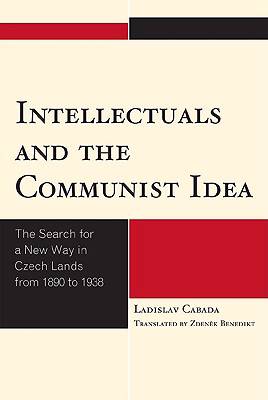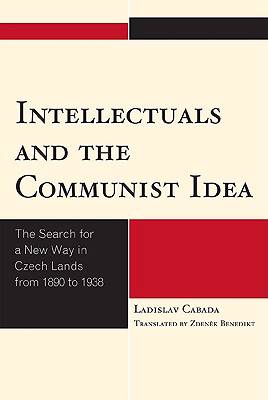
Bedankt voor het vertrouwen het afgelopen jaar! Om jou te bedanken bieden we GRATIS verzending (in België) aan op alles gedurende de hele maand januari.
- Afhalen na 1 uur in een winkel met voorraad
- Gratis thuislevering in België vanaf € 30
- Ruim aanbod met 7 miljoen producten
Bedankt voor het vertrouwen het afgelopen jaar! Om jou te bedanken bieden we GRATIS verzending (in België) aan op alles gedurende de hele maand januari.
- Afhalen na 1 uur in een winkel met voorraad
- Gratis thuislevering in België vanaf € 30
- Ruim aanbod met 7 miljoen producten
Zoeken
Intellectuals and the Communist Idea
The Search for a New Way in Czech Lands from 1890 to 1938
Ladislav Cabada, Zdenek Benedikt
Hardcover | Engels
€ 183,45
+ 366 punten
Omschrijving
Intellectuals and the Communist Idea describes how the Communist ideology penetrated into Czech culture and politics from the dawn of the twentieth century into the late 1930s, just before the outbreak of WW II in Europe. Based mainly upon the research of contemporary primary sources, the analysis examines the complex issue of personal reasons and individual motivations, appealing slogans, and ideological and power peripheries connected with the formation of the relationship between the newly-founded Communist Party in Czechoslovakia and the left-wing artists and intellectuals declaring themselves Marxists. The work follows two main paths: the first is marked by the melting of the pre-war (meaning WWI) libertarian communism and radical left-wing stream in Czech politics into the Czechoslovak Communist Party, established in 1921 and becoming a strong and relevant political subject soon after its foundation. The second path follows the left-wing art front involvement in the Communist Party and its activities within. This concise insight into the world of Czech Communist intellectuals uncovers the ideological bigotry and intolerance of the Communist class-defined ideology, together with pointing out the unprincipled pragmatics of the ideological flops committed by the members of the interwar Communist movement under Lenin's and later Stalin's ward. The book illustrates clearly how the initial enthusiasm of the Czech Communist intellectuals eventually changed either into disillusionment resulting in their disaffiliation with Communism, or into permanent fear and obedient loyalty, which later became the base for establishing the Communist system in post-WW II Czechoslovakia.
Specificaties
Betrokkenen
- Auteur(s):
- Uitgeverij:
Inhoud
- Aantal bladzijden:
- 210
- Taal:
- Engels
Eigenschappen
- Productcode (EAN):
- 9780739143766
- Verschijningsdatum:
- 14/09/2010
- Uitvoering:
- Hardcover
- Formaat:
- Ongenaaid / garenloos gebonden
- Afmetingen:
- 162 mm x 235 mm
- Gewicht:
- 498 g

Alleen bij Standaard Boekhandel
+ 366 punten op je klantenkaart van Standaard Boekhandel
Beoordelingen
We publiceren alleen reviews die voldoen aan de voorwaarden voor reviews. Bekijk onze voorwaarden voor reviews.









